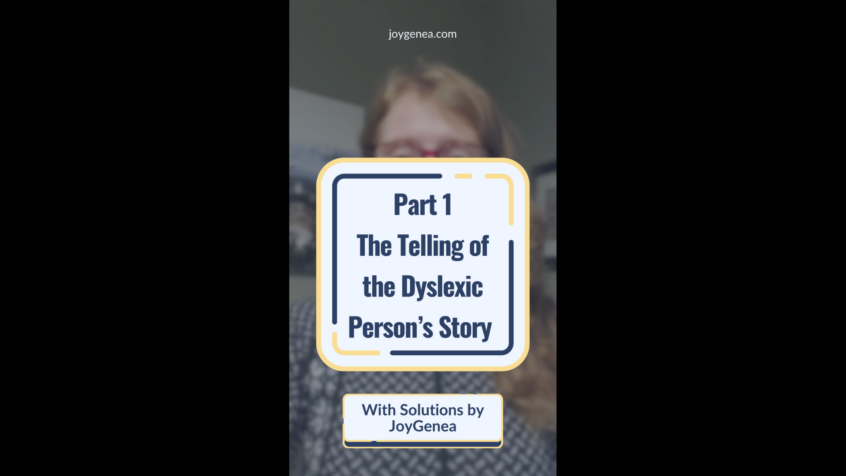I want to take a moment to look at how the dyslexic person’s story is told.
I am going to use Keanu Reeves as an example. I just happened to learn yesterday that he is a dyslexic thinker, and I did a little internet exploring to learn more. How his life was interpreted was interesting to me and it got me thinking; Is this motivational or defeatist/victim-style communication?
I know that words matter, as they have been used as weapons towards me in many parts of my life by others. That weaponization of words has given me additional insight into the power of the words we choose and how that leads to the stories we tell ourselves about ourselves.
In particular the use of words like “developmental issues” or “suffered” are both used in Part 2 of this deeper look at how people write about dyslexia.
I am sure that I have written things from this more defeatist/victim-style communication. Now that I am seeing it with new clarity, I will be shifting things in the future.
You decide for yourself what you think.
ORIGINAL TEXT
Hollywood star, actor and philanthropist, Keanu Reeves, was diagnosed with dyslexia as a child. The traditional school setting became a formidable challenge over time, but nevertheless he went on to become a successful actor, starring in box office hits like “The Matrix” and the “John Wick” series. Reeves attributes his love of learning and reading to his step-grandfather who worked for Encyclopedia Britannica. “In my room, I would just open them up. There was a curiosity there. I really enjoyed it,” he said. SOURCE
SUGGESTED UPDATE TO TEXT
Hollywood star, actor, and philanthropist, Keanu Reeves, discovered he was a dyslexic thinker as a child. Like most dyslexic thinkers the traditional school setting did not fit his learning style or skills. As we can all see now his true gifts and talents lie in acting as he is a successful actor, starring in box office hits like “The Matrix” and the “John Wick” series. Reeves attributes his love of learning and reading to his step-grandfather who worked for Encyclopedia Britannica. “In my room, I would just open them up. There was a curiosity there. I really enjoyed it,” he said.
Transcription:
Hey, JoyGenea here. I want to take a moment for us to talk about how the dyslexic person is described, how that story is told. I’m going to use Keanu Reeves as an example.
I just happened to learn yesterday that he is a dyslexic thinker and so right away I got curious and I went out on the internet and did a bunch of exploring to learn more and how his life is interpreted is interesting to me and it got me thinking is this motivating conversation or is this possibly defeatist and victim style communication when people describe things. So I’m gonna give a couple of examples.
This is part 1. So, in this one they come out saying, “Hollywood star, actor, and philanthropist, Keanu Reeves was diagnosed with dyslexia as a child. The traditional school setting became a formidable challenge over the time, but nevertheless he went on to become a successful actor. Staring in box office hits like ‘The Matrix,’ ‘John Wick’ Series. Reeves attributes his love of learning and reading to his step-grandfather who worked as an Encyclopedia Britannica salesperson. “In my room I would just open them up. There was curiosity there. I really enjoyed it.” He said.
That’s one interpretation, now let’s- what if we could say that a little bit differently? “Hollywood star, actor, and philanthropist, Keanu Reeves, discovered he was a dyslexic thinker as a child. Like most dyslexic thinkers, the traditional school setting did not fit his learning style or skills. As we can all see now, his true gifts and talents lie in acting, as he is a successful actor starring in box office hits like ‘The Matrix’ and ‘John Wick’… Can you hear a little bit of the difference that happens when you say things like ‘discovered he was a dyslexic thinker as a child,’ or ‘as a dyslexic thinker, traditional school settings didn’t quite work for him.’ I know this seems like it might not be that important, but it is what parents and young people first learn or are um told that they are dyslexic thinkers that they have dyslexia, that they have ADHD, they hit the internet and they go out searching, and they wanna find success stories and they also wanna find out you know, they’re trying to put together what all this is. And it concerns me when what they come across reads so like this could be a devastating thing, but an elite group of people become successful. The truth is, many dyslexics are massively successful in a wide variety of ways. I want to make sure that we’re able to celebrate and find that easily on the internet. So, that’s my interesting question.
Thanks, bye.
